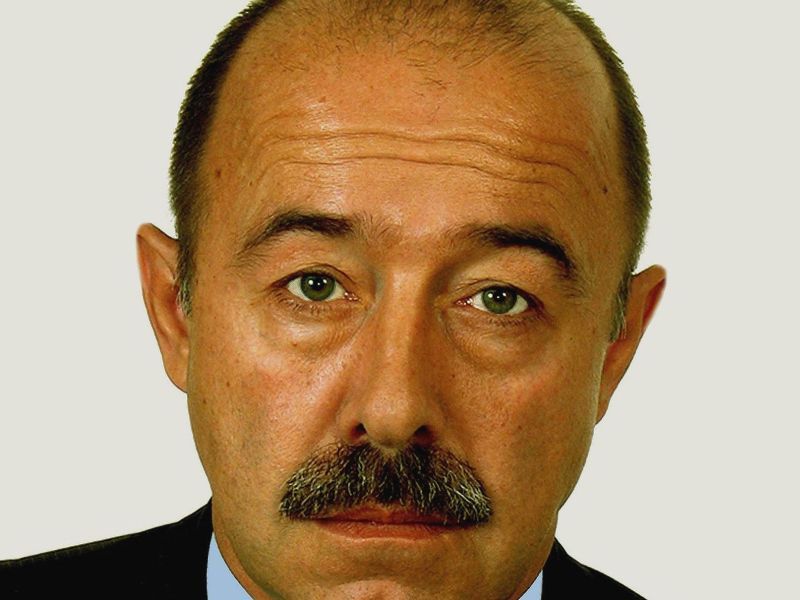
More Rights Activists Attacked in Kyrgyzstan
Publication: Eurasia Daily Monitor Volume: 6 Issue: 232
By:

Three public figures were attacked in Bishkek in the past week. On December 9, former president Askar Akayev’s aide Bolot Januzakov was severely beaten. On the same day Aleksander Knyazev professor of the Kyrgyz-Slavic University, who often criticizes the current regime for usurping power, was also assaulted. On December 15, the Russian journalist Aleksander Evgrafov was attacked by policemen and warned not to criticize Kyrgyzstan in his work (www.24.kg, December 10, 16).
The number of violent attacks against critics of the regime has escalated in 2009. Several journalists have been severely beaten and NGO leaders persecuted. In March, President Kurmanbek Bakiyev’s former aide died in a suspicious car accident (EDM March 16). Several human rights activists have been denied entry to Kyrgyzstan in the past months.
According to Knyazev, his assailants made it specifically clear that he was attacked for his political activism. Knyazev linked the attack to his criticism of both the regime and political opposition. He also said that the attack might be connected to his research on the Russian diaspora (www.24.kg. December 10). Knyazev has also been an ardent supporter of Russia’s greater engagement in Kyrgyzstan. Januzakov, in turn, was found unconscious near his apartment with only his cell phone stolen (www.centrasia.ru, December 10). His wife said that she was not sure if the attack was linked to his professional life. Finally, Evgrafov claimed that he was beaten by several policemen who knew his identity.
The recent series of attacks once again shows the Kyrgyz regime holders’ sense of impunity. Aside from local NGO’s, whose visibility considerably declined in the past year, there is little pressure exerted on Bakiyev’s leadership. Local mass media avoid direct criticism of the government. While local activists are unlikely to pose an immediate threat to the incumbent political elite, they act more as irritants which the regime tries to silence by resorting to the help of the security structures and hired criminals. Bakiyev is also immune to international criticism as his regime is able to self-finance itself through corruption and control of major economic sectors.
Meanwhile, on December 15, the US Senate held hearings examining United States policy towards Central Asia. In the list of five policy priorities, good governance and respect of human rights ranked third, behind expanding security cooperation and diversifying energy resources in the region. At the hearings US government representatives thanked the Kyrgyz government for allowing Manas airport to continue to transit cargo and troops within the Northern Distribution Network (NDN), and expressed enthusiasm in Kazakhstan’s upcoming chairmanship of OSCE next year. Along with recognition of Kyrgyzstan’s efforts within the NDN, Kyrgyzstan (and Tajikistan) was thought to have the greatest risk of becoming a “failed state”.
There is a growing criticism of the listed priorities among both US and Central Asian experts. At the hearings Martha Brill Olcott, senior fellow at the Carnegie Endowment, said that “the US priorities [in Central Asia] with the exception of adding the NDN have been largely unchanged since 2001.” Equally, Olcott noted that Central Asian countries have changed significantly since then, with some countries becoming poorer and more authoritarian.
According to Stephen Blank, professor at the Strategic Studies Institute, United States Army War College, who also testified before the Senate, Central Asia is of critical importance for the United States not just because of Afghanistan. Blank stated that “there are multiple security issues and threats that could impact upon international security in general and US foreign policy in the region in particular. Many of them are domestic in origin: to varying degrees the states suffer from illegitimate governance, they are authoritarian states in which we see despotism, clan, family rule and nepotism.” It remains to be seen to what extent the US will consider experts’ assessment of this policy.
Days after the violent attacks, numerous local and international human rights activists and scholars addressed Bakiyev with an official letter demanding an investigation of the incidents under his personal control. The letter interprets the attack against Knyazev as “having all the signs of a contract crime and is linked to his professional life as a scholar specializing in themes that include the Russian diaspora in Kyrgyzstan” (www.centrasia.ru, December 16). As the number of violent attacks and assassinations has been on the rise since Bakiyev came to power, a very small portion of them have been solved. Similar letters have been submitted on a number of occasions, including last week when a human rights activist from Tajikistan was denied entry into Kyrgyzstan. They brought little change in the Bakiyev regime’s treatment of human rights abuses.




